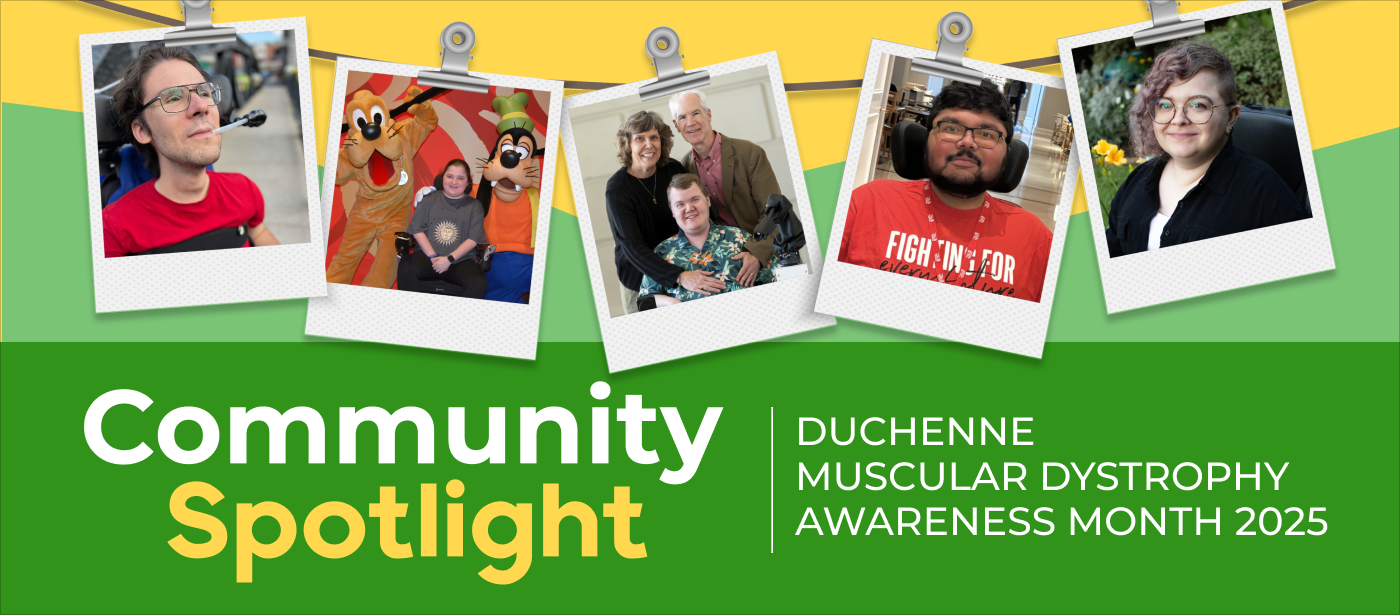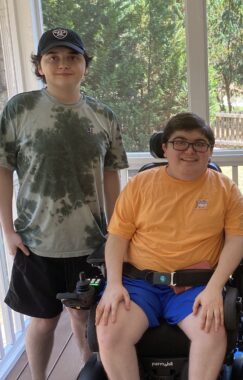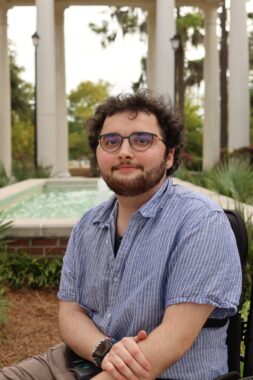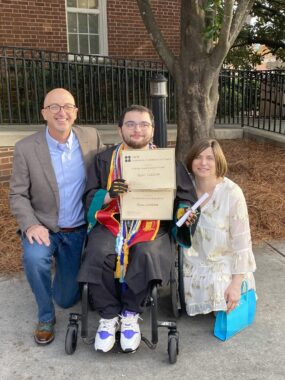My late brother was my greatest teacher, in life and Duchenne
Written by |

In recognition of Duchenne Muscular Dystrophy Awareness Month in September, the Duchenne Muscular Dystrophy Community Spotlight campaign features a series of stories highlighting the real-life experiences of people affected by Duchenne muscular dystrophy, written in their own words. Follow us on Facebook, Instagram, X, and Pinterest for more stories like this, using the hashtag #MDSpotlight, or read the full series.
Living with Duchenne muscular dystrophy (DMD), I used to have a support system in my battles with progression and the injuries associated with my neuromuscular condition, and that was my brother, Andrew. Andrew had a more typical DMD progression than I did.

Reece Littleton stands next to his now late older brother Andrew Littleton in a photo taken in about 2008. (Photos courtesy of Reece Littleton)
While I was driving, walking, and living independently in high school, he’d had the opposite experience. For Andrew, his high school days consisted of bone breaks, personal care assistants, hospital stays, bullies, and a lack of community.
This was the case until his senior year, when he did have a typical high school experience. He made quality friends, attended prom, graduated, went to college, and landed a job during the summer with me. For the first time in my life, I realized that living with Duchenne can have extreme lows, but these lows do not define you; the way you respond to them does.
With Andrew being my brother, I had lived with Duchenne twice, until 2023, when he suddenly died in my first year of college.

Littleton, pictured here on the UNCW campus, now attends graduate school at N.C. State University and works as a teaching assistant.
Since then, at home, I have felt alone in coping with my struggles from Duchenne. These struggles were breaking my femur in 2024, which reduced my mobility, mental health challenges, and heart failure progression.
I felt alone for a long time after his passing, as he was my only direct connection to the Duchenne community.
However, once I broke my femur, I noticed something amazing. My parents and I had gone through my brother’s femur breaks, so we knew the game plan, and the coach who created the game plan was Andrew. I advocated for admission to Duke University Hospital and received the same orthopedic care as Andrew. I reached out to Dr. Laura Case at Duke, who was my brother’s biggest advocate growing up, PT-wise. Our family friend Max came down and helped me, the way he helped Andrew and our family.
Andrew taught me how to use a slideboard, patience (and impatience) with recovery time, and how to push through adversity.

Littleton, center, poses between his parents, Jim and Lisa Littleton, at his UNCW graduation in 2024.
As a 22-year-old with DMD and a brother, I’ve now experienced Duchenne twice, but I have this final gift from Andrew: his lived experience. I was there, through all the bone breaks and hospital stays, which, as a child, made me angry: Why does everything have to be about him? Why can I never seem to get attention?
I had a lighter form of Duchenne, which is where my anger came from, as I thought this was going to be me in the future. While this used to scare me a lot, and it still does, I can reflect on this now in a different light.
I gave Andrew a hard time, on purpose or by accident, like when I broke his arm, but his service dog broke my arm in return a few years later, so we are even, right?
I cannot go back in time and be kinder to Andrew; however, I can use his lived experience to have a positive impact on myself and others.
His 23 years of experience with Duchenne are valuable, and I plan to use his lived experience and the lessons he taught me growing up, even when I didn’t know he was the teacher.



